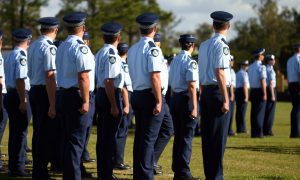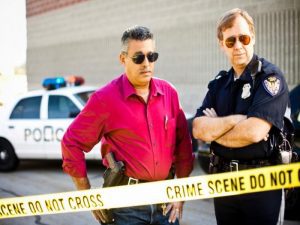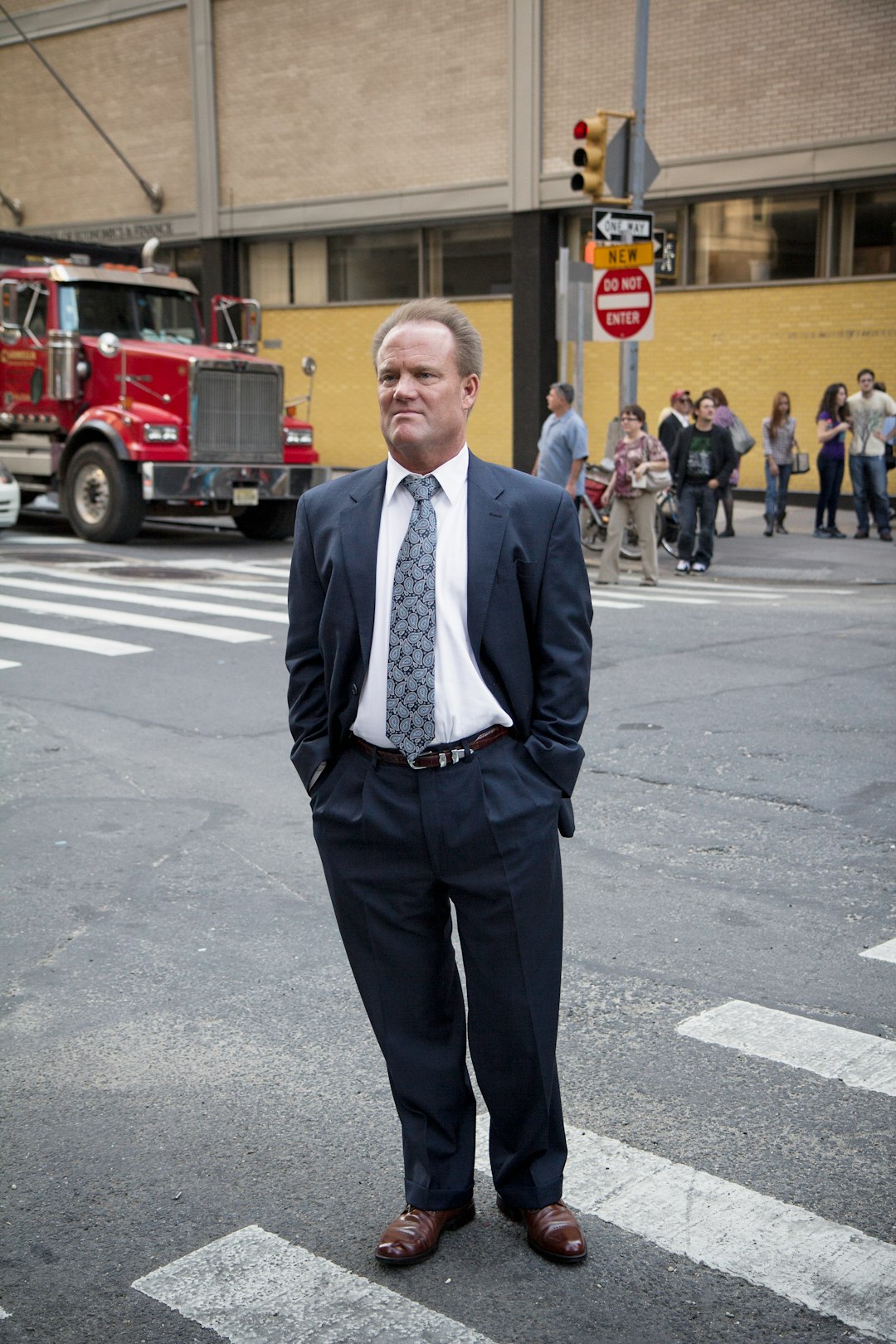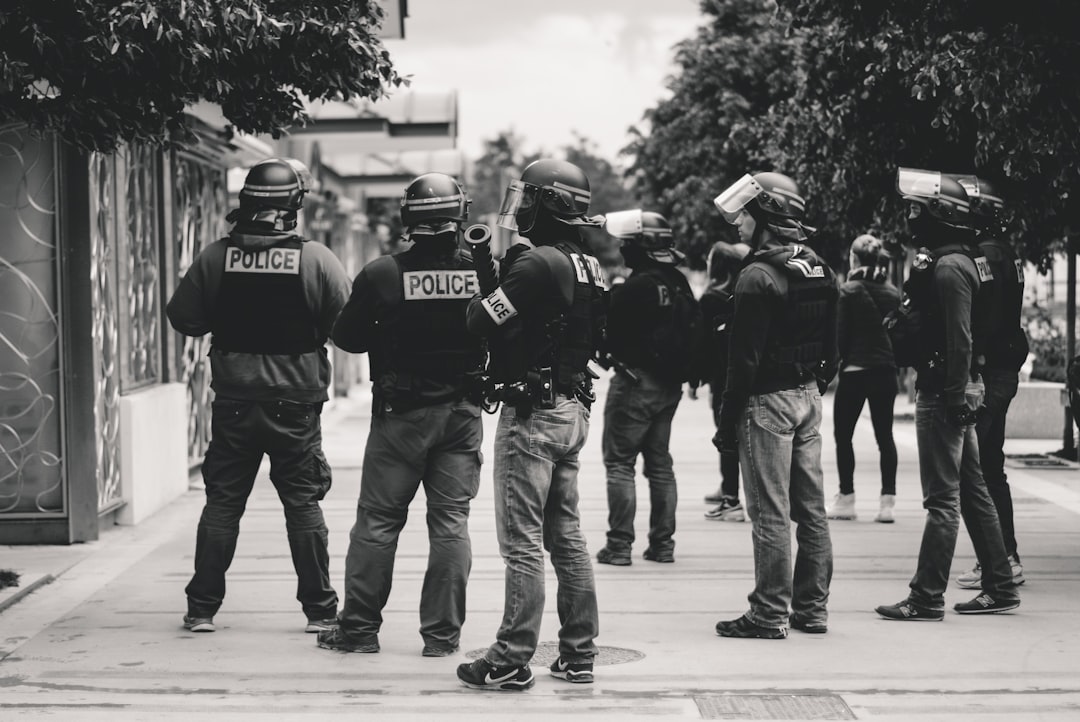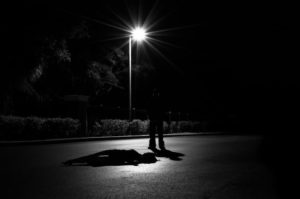2 Red Flags That will Likely Cause an
Agency to pause on hiring you
Checkered Past
everyone ought to know that having a felony conviction on your criminal record is essentially a modern day scarlet letter that will prevent anyone from becoming a police officer, however having a pattern of lawlessness and a clear disregard for the law will also prevent you from getting a law enforcement job.
Social Media posting
constantly ranting on social media about social events, and Posting tasteless photos of yourself getting drunk or using drugs is another common red flag that will reflect negatively on you as a prospective recruit. Agencies are looking for applicants with good moral characters and posting tasteless photos aren't a good sign.
WATCH: How to Train To Become a Cop
Colorado Police Requirements:
Minimum Qualifications
Here are some of the basic requirements to become a police officer in Colorado. Note some agencies may have additional requirements
- Must be a United States citizen
- Must not have any felony convictions
- Must have a valid Driver's License
- Must Have high school diploma or GED
- Must Be good communication skills
- Must be at least 21 years of age
- Must pass all stages of the hiring process
- Must Be someone of good moral character
Disqualification factors to be aware of:
Disqualifiers
- Criminal Case where disposition is still pending
- Being dishonest during the selection process
- dishonorable discharge from the military
- Failure to pay your taxes
- Any Felony Convictions
- Failed the drug screen test
- Falsifying documents meant to evaluate your suitability
- Offensive and discriminator tattoos
- History of domestic violence convictions
- Any Felony Convictions
- Terminated as a result of giving false statements while serving as a police officer
Complete Online Application
Written Test
Video Test
Polygraph Test
Psychologist Test
Physical Agility Test
Preliminary File Review
Background Investigation
Fingerprinting
Drug Screen
Medical Examination
Psychological Examination
Police Training Academy
Police Training Academy Courses
BASIC TRAINING CURRICULUM
- Firearms, including the auto pistol and the shotgun.
- Driving, including pursuit techniques and vehicle dynamics.
- Arrest control, including Pressure Point Control Tactics.
- Criminal law, constitutional law and motor vehicle law.
- Accident investigation and reporting.
- DUI enforcement, drug enforcement and truck enforcement.
- Conflict resolution, crisis intervention and victim assistance.
- Criminal investigations and courtroom procedures.
- Radio procedures.
- Proper use of radar speed control devices.
- First Aid and CPR.
Specialized Units in Colorado
Crime Lab Section
Emergency Response Team (E.R.T.)
Fugitive Apprehension and Surveillance Team (F.A.S.T.)
Gang Intervention Unit (G.I.U.)
K-9 Unit
Major Investigations Section
Narcotics Section
Police Area Representatives (PAR)
School Resource Officers
Special Victim Unit
Special Weapons and Tactics Team (S.W.A.T.)
Strategic Response Team (S.R.T.)
Traffic Section
Neighborhood Policing Unit
According to U.S. labor of bureau statistics (2018) the average salary for a police officer in Colorado is...
* The base pay above does not Include holiday pay, longevity pay, education level, uniform allowance, shift differential and overtime. Cops can potentially earn more than the figure above suggest.
Average Pay Percentile Breakdown
The percentile wage estimate below is the value of a wage below which certain percent of workers fall. Data collected from U.S. Bureau of Labor Statistics (2018)
Find Best Police Jobs in Colorado
Click below to search for police jobs near me in CO. Browse jobs by city/county or zip code
Police Officer Requirements in colorado
**IMPORTANT**
The information below may have changed, please visit the official webpage of the agency you are interested in working for
Duties & Responsibilities of a Police Officer
The job of a Colorado State Trooper is extremely rewarding, but it is also very, very demanding. To be successful, a trooper must:
- Be held to the highest ethical standards of the community.
- Work comfortably within a paramilitary organization.
- Be able to work alone and think independently.
- Understand the inherent dangers of the profession.
- Become proficient with a variety of issued weapons.
- Be willing to use deadly force, but only as a last resort.
- Learn to drive an automobile more efficiently than most people.
- Know how to change a tire or jump a dead battery for a citizen.
- Be ready to assist and comfort the victims of a traffic accident.
- Maintain self-control in the presence of serious injury or death.
- Be able to cope with critical or traumatic situations.
- Have the skills to mediate disputes between people.
- Know how to use words to defuse a dangerous situation.
- Be able to physically control a person who won’t listen to words.
- Enjoy helping people.
- Be able to take verbal abuse from some people.
- Accept that a lot of the job involves filling out paperwork.
- Work long hours on late shifts and holidays.
- Be willing to work anywhere in Colorado.
As a service organization, the Colorado State Patrol strives to meet the needs of Colorado’s motorists. At the same time, the State Patrol must protect the overall safety and security of the motoring public by enforcing Colorado’s traffic and criminal laws.
Sometimes, these two goals can create conflict between a trooper and a citizen, and the trooper is expected to resolve that conflict in a way that is consistent with the State Patrol’s motto, “COURTEOUS BUT FIRM”.
Colorado State Troopers are committed to long term, proactive problem solving through the development of lasting partnerships with the public and local government. The philosophies of community policing are apparent in every aspect of the department.
Some of the day-to-day activities of troopers include:
- Assisting motorists who are having problems with their cars.
- Issuing citations to motorists who violate traffic laws.
- Investigating traffic accidents and assisting the victims.
- Executing arrest warrants and search warrants.
- Removing intoxicated drivers from the highways.
- Searching for drug traffickers.
Generally, troopers patrol highways that are not patrolled by local police and sheriff’s departments, but troopers are frequently asked to assist local agencies with arrests and investigations. State Troopers conduct fewer criminal investigations and more accident investigations than most police and sheriff’s departments.
To become a Colorado State Trooper, you must fulfill the following minimum qualifications:
- Reside in Colorado (no minimum time required). Both military and civilian applicants must meet this requirement.
- Have a valid Colorado driver’s license.
- Be at least 21 years of age.
- Have a high school diploma or G.E.D. certificate.
- If you apply to be a trooper, you will be required to take a polygraph examination, a physical examination and a psychological examination, and agree to a thorough background investigation (see below).
If you fulfill the above qualifications, your first step is to complete and submit a State Patrol Employment Application at any State Patrol Office or at the Human Resource Office of the Colorado Department of Public Safety (CDPS). If you don’t know where the nearest State Patrol Office is located, click on the link in the the left column to see a list of addresses. The CDPS Human Resource Office is located at 700 Kipling in Lakewood.
Within three weeks of the date you submit your application, you should receive a letter from the CDPS Human Resource Office. If you have not received a letter after three weeks, contact Beth Kimzey at (303) 239-5777.
The letter will tell you where to pick up a packet of pre-exam materials, some of which you must fill out and send back to CDPS.
After the Human Resource Office has received and reviewed your application materials, you will be contacted by phone and instructed how to schedule a Field Interview with a State Patrol commander, and how to schedule yourself for the Written Cadet Examination.
If you are among the highest scoring candidates on the written exam, you will proceed to the second phase of the selection process, which includes a Job Suitability Interview, a Polygraph Examination and a thorough Background Investigation.
If you continue to be a high scoring candidate, your name will be placed on a Referral List to be considered for assignment to a Basic Training Class at the Colorado State Patrol Academy.
As the date of the next Basic Training Class approaches, a Conditional Offer of Employment will be made to the top candidates on the Referral List. If you receive an Offer of Employment, you must take and pass a Physical Examination (at your cost) and a Psychological Examination (provided at no cost to you).
This is the final phase of the application process, and the candidates who pass both the physical and psychological exams will be hired as State Patrol Interns (more commonly known as Cadet Troopers or Cadets) and given a date to report to the Academy.
Few jobs in the public or private sector make physical demands as potentially strenuous or serious in consequence as that of a law enforcement officer. At any moment, an officer may be required to subdue a violent suspect, and if the officer is unable to respond with appropriate strength and force, the officer or the public may suffer serious injury or death. It is important for applicants to understand that physical conditioning is a critical aspect of being a Colorado State Trooper.
Upon arrival at the Academy, each new cadet will receive a Fitness Standards Assessment which includes a 12 minute Cooper Run, sit-ups, push-ups, pull-ups, broad jumps and bench presses, as well as other exercises. Each applicant is strongly encouraged to undertake a vigorous personal physical training program prior to reporting for training at the Academy. Cadets who arrive at the Academy physically fit will also be mentally fit and will find the training much easier.
The State Patrol’s Basic Training Classes begin in mid-January and mid-July. Each class runs for 22 weeks, including a one-week midterm break. The training is very intensive, and the atmosphere is similar to military basic training.
Lodging and meals are provided, and cadets are required to live at the Academy for the first seven weeks. For more information about the Academy and the basic training course, click on the State Patrol Academy links in the left column.
These are some of the subjects taught during basic training:
- Firearms, including the auto pistol and the shotgun.
- Driving, including pursuit techniques and vehicle dynamics.
- Arrest control, including Pressure Point Control Tactics.
- Criminal law, constitutional law and motor vehicle law.
- Accident investigation and reporting.
- DUI enforcement, drug enforcement and truck enforcement.
- Conflict resolution, crisis intervention and victim assistance.
- Criminal investigations and courtroom procedures.
- Radio procedures.
- Proper use of radar speed control devices.
- First Aid and CPR.
This list only scratches the surface; there are over 70 different subjects taught during basic training. Many of the classes are held in the evenings, so cadets are often away from their families for extended periods.
Toward the end of basic training, each cadet receives a duty assignment to a State Patrol Troop somewhere in Colorado. Although cadets are allowed to indicate three assignment preferences, assignment to a specific location cannot be guaranteed.
To successfully complete basic training, cadets must qualify in academics, firearms, driving and arrest control. Upon graduation, the cadets are promoted to Troopers and they begin a minimum of eight weeks of Field Training and evaluation. After successful completion of Field Training, the Troopers begin their careers as full-time peace officers, although they are in a probationary status for the first year.
The following benefits are provided by the State of Colorado:
- A variety of health insurance plans are available to troopers and their families. The cost of each plan depends on the services provided.
- A life insurance policy is provided to each trooper at no charge.
- A dental insurance plan is available to troopers and their families at minimal cost.
- Annual leave and sick leave are accrued each month; the amount of annual leave increases with length of service.
- Colorado state employees receive approximately ten paid holidays each year.
- Troopers are eligible for membership in the Patrol Protective Association (PPA), which provides additional benefits.
The following retirement options are available to troopers:
- Retire at any age with 30 years of service.
- Retire at age 50 with 25 years of service.
- Retire at age 55 with 20 years of service.
- Early retirement at age 50 with 20 years of service (reduced benefits).
- Retirement benefits are based on the highest average salary and years of service. The highest average salary is the average of the highest three 12-month earning periods in your career.
Troopers are required to spend at least two years on the road at their first assigned troop, after which they may apply for transfer to a new duty station where a vacancy is available. At this point, a number of career paths are possible. In addition to lateral transfers between field troops, troopers may apply to one of the full-time specialized units within the State Patrol:
- Motorcycle Officers provide escorts and traffic control for special events around Colorado, as well as perform standard patrol duties.
- Motor Carrier Safety Officers conduct truck safety inspections on the road and at motor carrier companies, assist in the investigation of truck accidents and conduct classes in motor carrier safety.
- Hazardous Materials Specialists control spills and leaks of hazardous materials, inspect trucks for hazardous materials violations and conduct informational classes.
- Criminal Investigators follow up on leads developed by troopers during motorist contacts. Investigations often involve vehicle theft and drug trafficking.
- Aircraft Pilots provide aerial support for traffic enforcement and transportation for people and cargo. The State Patrol has five aircraft. There is a link to the Aircraft Unit’s webpage in the left column.
- Academy Staff Members coordinate and conduct basic and advanced training at the Academy.
- Executive Security Officers provide personal security and transportation services at the Executive Residence and the Capitol Building. There is a link to the Executive Security Unit’s webpage in the left column.
- Full-time administrative and public information positions are available to troopers in the Staff Services Branch at State Patrol Headquarters in Lakewood.
Troopers may only apply for transfer to units that have a vacancy. Some specialized units do not have vacancies very often, and they all have their own prerequisites for application. Vacancies are announced by the CDPS Human Resource Office.
There are also some part-time specialties available at the division and troop levels:
- Field Training Officers train and evaluate new troopers during their first eight to ten weeks on the job.
- Community Resource Officers and Public Information Officers act as State Patrol spokespersons with local communities and the media.
- Technical Traffic Crash Investigators/Reconstructionists use sophisticated computer techniques to assist in the investigation and reconstruction of traffic accidents. They also provide expert courtroom testimony.
- Field Physical Fitness Coordinators set up fitness programs and conduct annual physical fitness evaluations.
- Range Officers supervise the semi-annual handgun requalification of uniformed officers.
- Arrest Control Officers supervise the semi-annual requalification of uniformed officers in Pressure Point Control Tactics.
- The SORT Team handles crowd control situations related to civil disobedience and is comprised of specially trained troopers from around the Denver metro area.
- There are several K-9 Officers and their trained dogs at key locations around the state.
- Other troopers take special training to become VIN Inspectors.
The rank structure for uniformed members of the Colorado State Patrol is as follows:
Cadet Trooper
Trooper
Corporal (in field troops) or Technician (in specialized units)
Sergeant (usually sub-troop commander)
Captain (usually troop commander)
Major (usually district commander)
Lieutenant Colonel (regional commander)
Colonel (Chief of the Colorado State Patrol)
Troopers, Technicians and Corporals may apply for promotion to Sergeant after three years in grade. Sergeants and above may apply for promotion to the next rank after one year in grade.
The Colorado State Patrol has added an educational requirement for all newly hired troopers: to be eligible for promotion after January 1, 2001, you must have at least an Associates degree.
As an educational incentive, many state system community colleges offer 50% tuition grants to State classified employees. In addition, Cadet Troopers can receive degree credits for their Academy Basic Training from Red Rocks Community College in Golden.
